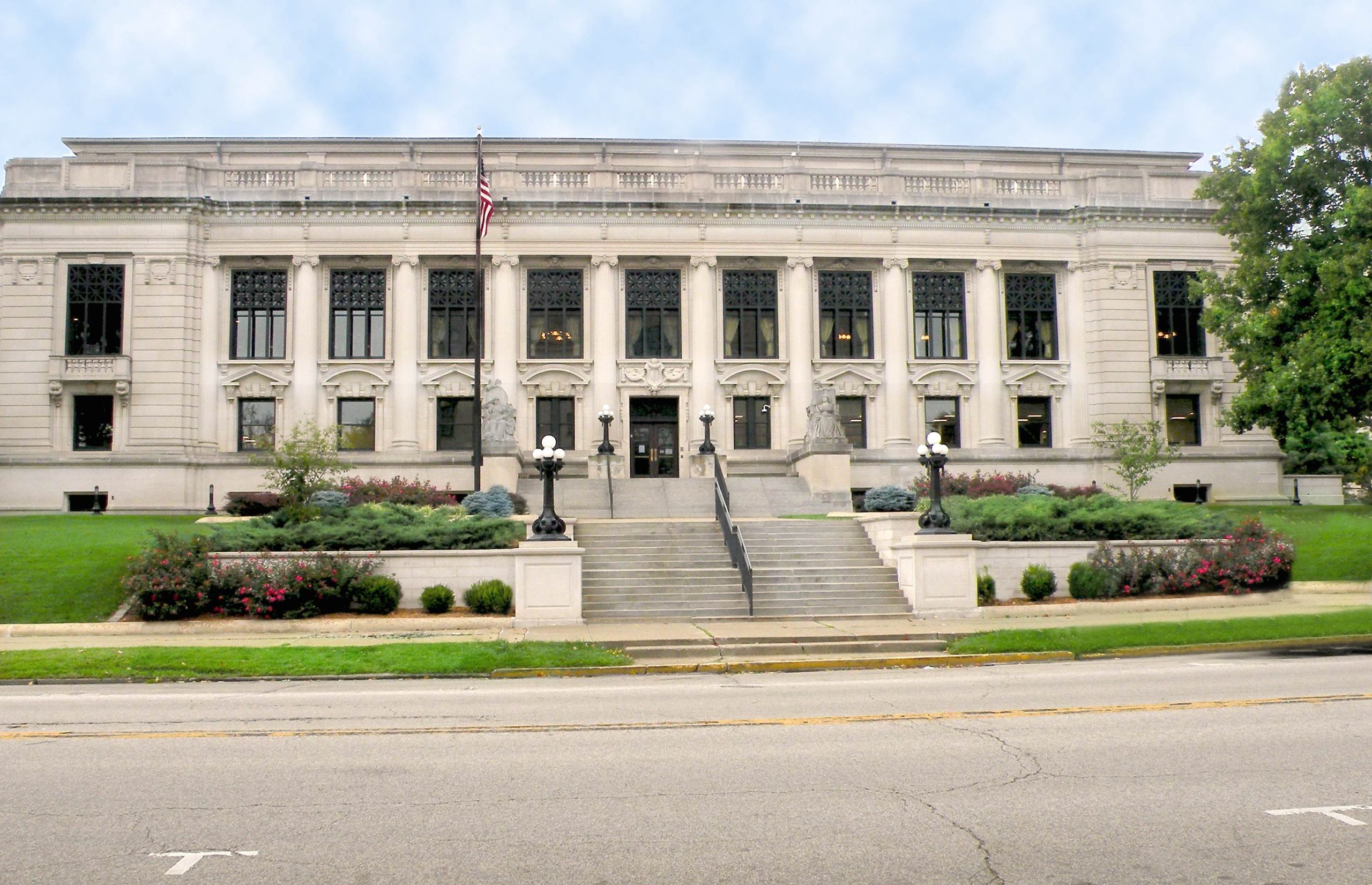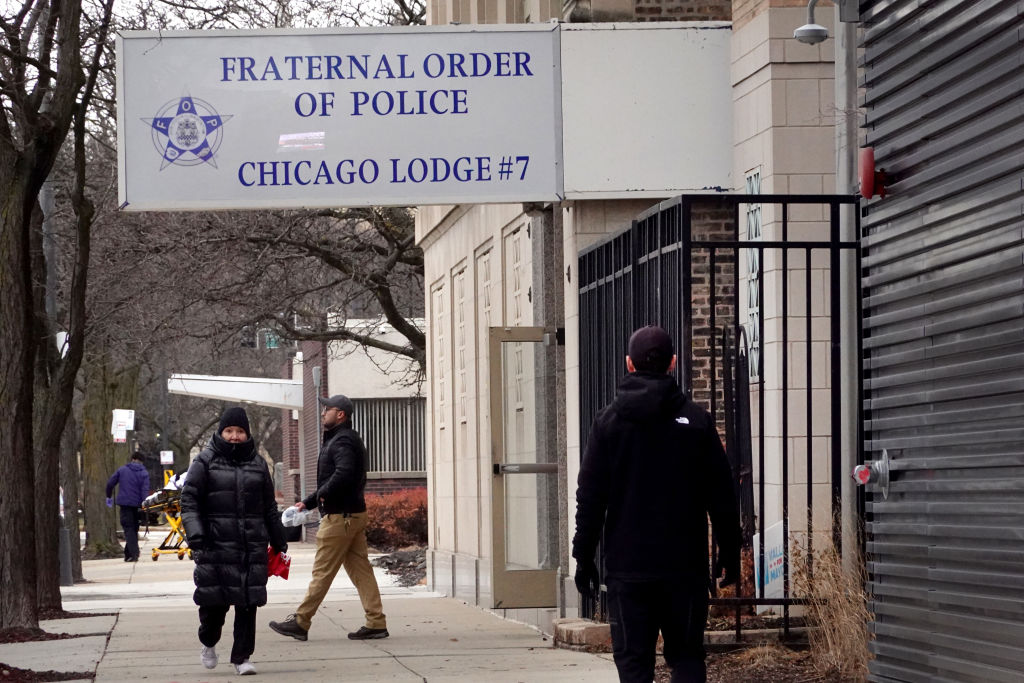A proposal from City Council ethics chair Ald. Matt Martin (47th) would add a public funding option to Chicago’s campaign finance landscape, bringing the city more in line with its largest peers.
New York City and Los Angeles have both had public funding programs in place for decades, and both were strengthened in recent years to make the option more competitive with private fundraising.
Public funding options like the one introduced by Ald. Martin offer taxpayer-funded donation matches for small-dollar campaign contributions. Campaigns that opt in see small-dollar donations multiplied with public money, while accepting limits on the kinds of contributions and spending they can use during an election cycle.
Supporters view public funding as an incentive for campaigns to court a wider swath of the electorate, while opponents argue that the subsidies are a waste of taxpayer dollars and potentially a form of compelled speech. Despite objections, public funding programs have been held to be constitutional in many jurisdictions, with at least 14 states and dozens of municipalities operating some form of public financing for elections. In many other countries elections are entirely or nearly entirely publicly funded, with strict controls on party fundraising and political advertising outside of the official electoral system.
The Better Government Association has previously advocated for public election funding at the state level. Ald. Martin’s ordinance lacks some key features of other state and city models, most critically campaign contribution and spending limits to bring non-participating campaigns into parity with those that participate, but the program would nonetheless be a shot in the arm for small-dollar donors and a powerful incentive for campaigns to court them.
Under the proposed ordinance, aldermanic campaigns choosing to participate would be eligible for a base payment of $50,000, plus a 12:1 match for the first $25 of any individual’s contributions and a 9:1 match for dollars above $25 up to a $150 limit. Participating campaigns would be eligible for up to $150,000 in matching funds, for a maximum possible public funding contribution of $200,000
To be eligible, campaigns would need to raise a minimum of $17,500 from at least 100 contributors, at least 60 of which would need to come from the candidate’s ward, and would be subject to stricter fundraising limitations than current state law. Maximum contributions to participating campaigns would be set at:
- $500 per individual
- $12,000 per political committee
- $12,000 in in-kind contributions from membership organizations
- $5,000 in personal contributions from the candidate
Participating candidates would also be required to participate in at least two public debates during the primary season, and a further two in the general election for those who advance.
Martin’s ordinance calls for funding in the form of an annual appropriation equal to no less than one-tenth of one percent of the city’s total appropriations that year, in addition to any fines, remittances, donations and previous cycle surpluses generated by the fund.
The proposed limit of $200,000 in public funds per four-year cycle per candidate is substantially lower than those of New York City and Los Angeles, which both reset their limits from primary to general election cycles. Candidates for New York’s City Council are eligible for up to $207,000 in public funds during the primary, $207,000 during the general, and $55,000 in non-election years, while Los Angeles offers a maximum of $174,000 during the primary and $217,000 during the general election.
The proposed Chicago ordinance as currently written also lacks an overall spending limit on participating campaigns, as well as any contribution limit on non-participating campaigns, both of which feature in the New York City and Los Angeles models. Spending caps and limits on non-participating campaigns can help put an upper limit on how much overall spending a public funding model has to compete within a given election cycle.
Illinois law currently limits individual contributions to $6,900 per campaign committee, while a participating campaign under the new model would be able to raise a maximum of only $1,925 from the combination of a maxed-out individual donor and that donor’s eligible matching funds.
Public funding models tend to be popular where enacted, and candidate participation usually grows with time. Both the New York City and Los Angeles programs recently were expanded. An increased matching formula and higher overall funding cap in New York City’s program saw a record-setting 309 candidates take part in the program in the 2021 cycle, including 264 candidates for the city’s 50 council seats.
In 2015, nearly 80% of Chicago voters expressed support for a publicly funded system in a non-binding referendum. Ald. Martin views both that referendum and the 2016 ordinance as encouraging signs that Chicago is ready for this particular reform: “We’re very proud to be bringing forward a robust ordinance,” he said. “We expect to receive lots of feedback both in and out of government.”
Pressed on a separate ethics ordinance, Mayor Brandon Johnson also expressed support for a publicly funded system at a press conference following the June 12 meeting of City Council, stating “If people are concerned about unfettered access that’s handed to a handful of people, let’s implement public financing.”
Upon introduction, Martin’s proposal was banished to the rules committee by Ald. Jason Ervin (28th), a parliamentary maneuver that delays consideration of the ordinance until it can be re-referred to the proper committee.
Ald. Martin doesn’t see that as an inherently bad thing, he told the Better Government Association: “This proposal will touch on everyone on City Council. Everyone will need to weigh in and we will need to win their support, and the rules committee is a committee of the whole.”
The alderman pointed to other initiatives that have undergone serious discussion and ultimately made progress while in the rules committee, and noted that rules committee chair Ald. Michelle Harris (8th) was a lead sponsor on a similar campaign finance initiative in 2016. That older ordinance would have established public funding options for all of the city’s elected offices, while Martin’s new version would apply only to candidates for City Council.
At a press conference Tuesday Ald. Martin left the door open to expanding the program to other offices down the road, saying “A number of other cities started with a subsection of city officials and then expanded on that. Right now I’m committed to passing a strong ordinance that we can implement in 2027,” referring to the next municipal election cycle.







